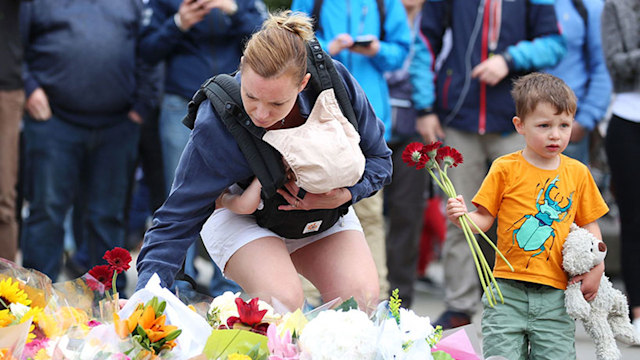In the wake of a second terrorist attack in two weeks, parents are left with a difficult decision. What – if anything – should they tell their children about the incident at London Bridge which killed seven people? And how much information should they expose them to about the atrocity in Manchester which claimed 22 lives?
We spoke with consultant psychiatrist Dr Martin Baggaley, executive medical director of the South London and Maudsley NHS Trust, to find out how parents should deal with the situation and the effect such attacks may have on children. Here’s his advice on how and what to tell your kids. What should children be told?
MORE: Jeff Brazier discusses talking terror attacks with his kids
EMBED START Image { id: "embedded1740" }
You need a degree of honesty and transparency. Children are usually somewhat ahead or more sophisticated than their parents give them credit for and trying to downplay it excessively is usually not going to work. It’s also important to put things in perspective. As much as it’s a horrible thing, the reality is that more people die on the road every day than were killed at London Bridge. You need to reassure the children that they themselves and their family are safe and it’s very unlikely to happen to them.
EMBED END Image { id: "embedded1740" }
EMBED START Image { id: "embedded1904" }
The difficult thing is to explain who did it and why, and that will depend very much on the age and educational level of their children. If a child is 13 or 14, you could end up having a debate with them about Islam and terrorism, but if they’re five or six, you probably talk more simply, saying that ‘these are bad men and they did bad things’. The important thing is they feel safe and reassured, so it might be worth saying ‘the police will catch the bad men’ or that ‘the bad men were shot by the police’ or whatever it happens to be.
For younger children, I don’t think you’d want to go into gory detail – I think you would say that bad men hurt some people or something like that to them. With older children though, you might reveal more and tell them that some were stabbed or were knocked over by a van.
How should parents behave?
EMBED START Image { id: "embedded1747" }
It’s important for parents to be calm and reassuring. The least helpful response is to be panicky and anxious yourself. Parents have a role in interpreting world events to their children because they are more experienced and knowledgeable. Children look at how their parents are behaving. Parents shouldn’t lie about what happened but appearing as if they’re still in charge and in control helps young children to feel the same way.
What else should you consider?
EMBED START Image { id: "embedded1738" }
The difficulty is children can access information through the internet and it’s a good thing for parents to have an idea on what sort of other information they are accessing. It would also be helpful to know what it is they are being told at school. Also knowing what is being said in relevant groups, for example at a youth club, is important so you can make a concerted response to the situation. They will be concerned about the safety of their parents or siblings or that sort of thing so they need to be reassured.
Has the frequency of recent attacks affected this issue?
EMBED START Image { id: "embedded1752" }
Only because it’s harder to reassure them that it won’t happen again – it’s not a one off, it clearly has happened again. Thus, it makes it even more important to have some form of conversation with them. You probably can’t avoid it.
Could getting this wrong have long-term effects?
EMBED START Image { id: "embedded1753" }
It shouldn’t do. Bad things happen very often. It is a terrorist attack but if you look at the news, it wouldn’t take very long before something nasty happens. The reality is children are exposed to quite a lot of horrible things. What makes it difficult is if it’s personalised. For example, with the Manchester attack a lot of young people were affected and this brings it home more.
Some children are going to be more affected, for example if they’ve had a recent loss in the family that will make it more difficult. However, I don’t think most children will be massively affected. On the whole, I think we tend to worry more than we need to.
Is counselling necessary?
EMBED START Image { id: "embedded1755" }
I don’t think it would be helpful to have mass counselling and psychological interventions. On the whole, those who aren’t involved directly will handle it reasonably well. If you actually do pay any attention to the news or world events, you will come across some unpleasant things and on the scale of things this isn’t necessarily much worse.
TRACKING START GA
TRACKING END GA
